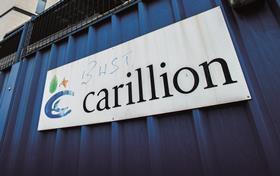Auditor KPMG to be questioned in parliament later this month

The MPs in charge of the inquiry into Carillion’s collapse have criticised the “big four” accounting firms for the role they played in the company going bust.
The work and pensions and business, energy and industrial strategy committees have published the responses from Deloitte, KPMG, PwC and Ernst & Young, to their queries on each of the firms’ involvement with Carillion over the past decade.
Responses from the four firms revealed they have billed the company, pension schemes and government £71m since 2008 relating to Carillion.
Labour veteran Frank Field, chair of the work and pensions committee, slammed the firms for taking advantage of Carillion’s financial difficulties.
He said: “The image of these companies feasting on what was soon to become a carcass will not be lost on decent citizens. We saw at the end of our evidence session that the former directors of Carillion are, unlike their pensioners, suppliers and employees, alright.
“These figures show that, as ever, the Big Four are alright too. All of them did extensive – and expensive – work for Carillion.”
He was particularly damning of PwC, who is acting as the special manager in the collapsed contractor’s liquidation.
He said: “PWC managed to play all three sides – the company, pension schemes and the Government – to the tune of £21m and are now being paid to preside over the carcass of the company as special managers.
“It was perhaps telling that, with their three fellow oligarchs conflicted, PWC were appointed to this lucrative position without any competition.”
Labour colleague Rachel Reeves, chair of the business committee and Field’s co-chair of the inquiry, raised serious questions about KPMG, who audited Carillion’s accounts.
She said: “KPMG has serious questions to answer about the collapse of Carillion. Either KPMG failed to spot the warning signs, or its judgement was clouded by its cosy relationship with the company and the multi-million pound fees it received.
“For the sake of all those who lost their jobs at Carillion and in the interests of better corporate governance, KPMG should, as a bare minimum, review its processes and explain what went wrong.”
KPMG, who will be questioned by the joint committee next Thursday, audited the failed contractor’s accounts every year since its inception in 1999, receiving £29.4m in fees.
KPMG said it did not accept any suggestion of blame and said it conducted work “appropriately and responsibly” but the joint committee said it would press the auditor about pensions, and the valuation of goodwill, which represented 73% of the value of Carillion’s assets in 2016, when it appears before MPs next week.


























No comments yet